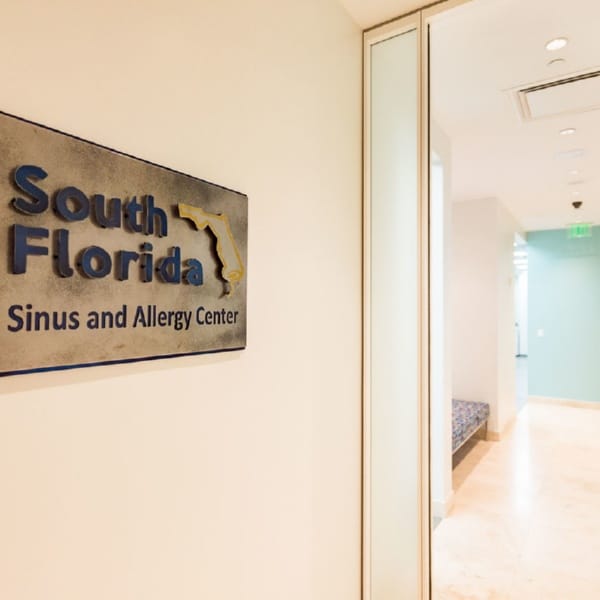If you’re suffering from sinusitis-related symptoms, the fact of the matter is that they might be triggered by a variety of causes. However, for those living in South Florida’s perennial humid, damp climate, there’s one silent, often the hidden culprit that’s quite common: mold. Today, we’ll cover the basics of mold allergies and the best treatment for them, starting with a visit to Florida Sinus & Snoring Specialists.
Mold And Allergies
When most people think of “mold”, perhaps you’re left thinking of the fuzzy, green, moss-like growth that appears on foods as though it arrived in a UFO. While these kinds of molds can make you sick and should certainly not be consumed, there are other molds that are more sinister… and less evident. These toxic fungi can grow in buildings and houses, living invisibly behind walls and floorboards.

They release spores into the air that, when ingested, can provoke your immune system and consequently stimulate an allergic response. Depending on the individual’s sensitivity to mold allergies and the magnitude of exposure, mold allergy symptoms can range from mild and little more than a nuisance, to severe and highly debilitating. At its extreme, an allergy to mold can even require hospitalization and surgery if it causes an infection that goes untreated.
Symptoms common to mold allergies include
- Sinus and throat infection
- Runny or stuffy nose
- Coughing and sneezing
- Watery or red eyes
- Dry skin
Important to remember is that long-term exposure to mold can aggravate existent allergies to other substances or issues with asthma.
Treatment And Prevention
As we hinted at above, Florida’s climate is perfect for mold growth. Humid and wet, our great state rarely experiences freezing temperatures (and even then, colder temperatures will deactivate mold spores, but won’t kill them). What’s more, many Floridians leave the state during the hot summer months, leaving their winter homes vulnerable. When they return, many find that the humidity has allowed their houses to become a veritable petri dish for mold of all kinds.
This is because water is a key catalyst for mold growth. Without humidity, mold has no chance of growing or spreading. Thus, controlling the humidity levels within your home, whether you’re there or not, is a crucial element of mold growth prevention. Keep humidity levels below 60% by venting moisture from showering and cooking, or by using a dehumidifier. If mold growth is particularly bad, a mold removal service may be needed.
In some cases, mold removal and prevention measures are enough to eliminate allergies. In other cases, medical treatment may be necessary. Nasal corticosteroids and antihistamines are commonly administered for temporary relief but are alleviatory at best. For individuals dealing with chronic allergies to mold, a treatment such as one of Dr. Mandel’s proprietary minimally invasive nasal and sinus procedures in combination with allergy immunotherapy is the best way to ensure long-lasting relief.

Get Mold Allergy Relief
With nearly three decades of experience, Dr. Lee Mandel has helped thousands of South Florida patients struggling with mold allergies year-round. He can help you too. Request an appointment online or call 954-983-1211 today to get on the path to breathing easier.
